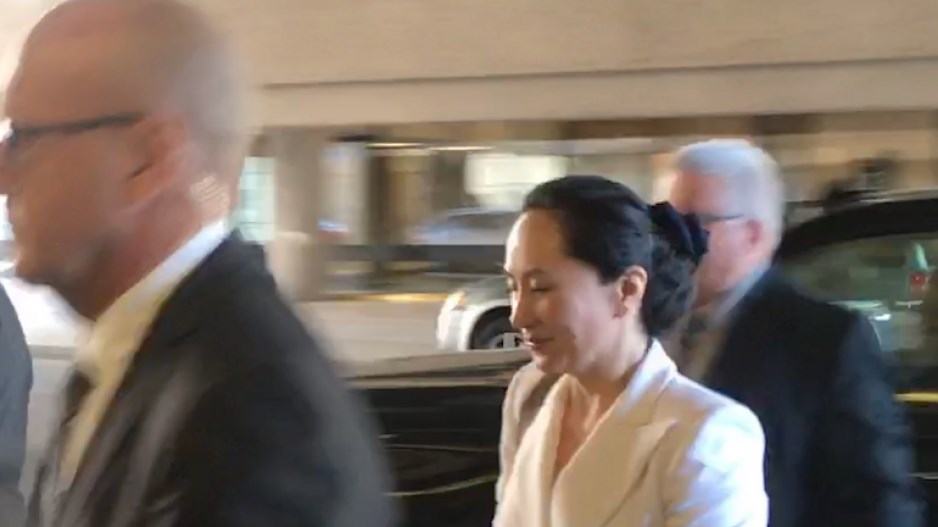The witness testimony portion of the Meng Wanzhou extradition hearings may stretch into the week of Christmas, the court heard on Friday.
Both Crown counsel John Gibb-Carsley and defence lawyer Richard Peck said they anticipate being able to complete witness cross-examination by the end of the week of December 7 – which had been slated as the last week of 2020 court dates for the high-profile proceedings.
However, Peck noted that the ability to finish testimony by that week is a "best estimate and not a promise," which led to BC Supreme Court Associate Chief Justice Heather Holmes to book an additional four court dates - December 21–24 - for potential overruns.
Holmes also requested that both the defence and Crown make something "akin to final submissions" on the case by the end of 2020's court sessions, outlining each side's positions based on the evidence that has been presented and noting what particular evidence Holmes should consider, and why.
After the 2020 sessions are over, the case does not reconvene until mid-February. Holmes said she made the request because of concerns about the long period of time between testimony and arguments over the testimony, adding she would like to take the month-plus period to review the evidence while paying attention to what the Crown and defence wanted to emphasize.
During Friday's hearing, the court heard that the RCMP officer with the highest degree of familiarity of working with Canadian border agencies in the Meng Wanzhou arrest said he wished he had taken more notes of the inter-agencies communications in the case.
Sergeant Ross Lundie, who is the supervising officer at YVR and was part of the police’s central integrated unit on national security investigations, told the court under cross-examination from Peck that he was invited to dinner at a friend’s place on the night of November 30, 2018 – the day before Meng was arrested at YVR.
Lundie confirmed that he received at least three calls from fellow RCMP officers that evening, including two from Gurvinder Dhaliwal – one of the two officers assigned to arrest Meng at the airport the next day.
“You told Mr. Gibb-Carsley [who questioned Lundie on Thursday] that you took no notes because you were at this dinner,” Peck said. “Between you and me, that’s no rationale for not making notes, no?”
“Looking back, I wish I had,” Lundie responded.
Peck also questioned Lundie to check if the FBI legal attache in Vancouver at the time had access to the RCMP main building in Surrey at the time of Meng’s arrest. Lundie said he is unsure if a U.S. law enforcement official had access to the building itself, but added he “highly doubted” such an official would have access to any offices or specific units in the building.
Peck’s questions then turned to why Lundie decided to attend Meng’s arrest on December 1, to which the police officer replied he was the most familiar with the process of the Canada Border Services Agency, and he was hoping to assist so the entire process went smoothly.
Lundie was adamant that the RCMP did not go onto the plane to arrest Meng, echoing other officers' thoughts that such a move would have presented too much risk to public safety despite Meng not having a history of violent crimes.
"I think everyone has seen what happens when officers go onto planes and try to arrest someone from the videos we see on social media," Lundie said. "So as a supervisor, I tell people to not make arrests on planes if you can avoid it... There's no indication of threat, but we prefer not doing that in the first place."
He also mentioned that there had been past instances of problems at the airport due to the police not respecting CBSA jurisdiction in making an arrest prior to talking to border officials.
The hearings for the Huawei Technologies CFO's potential extradition to the United States continue on December 7.




